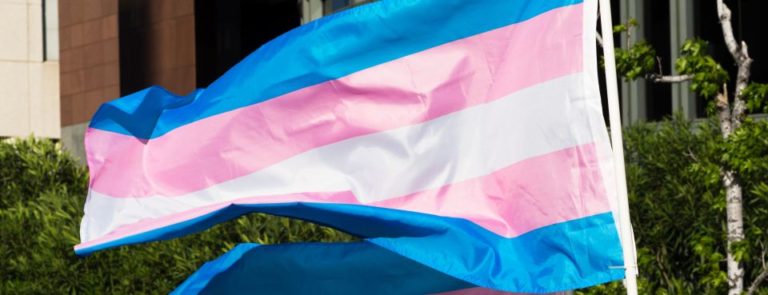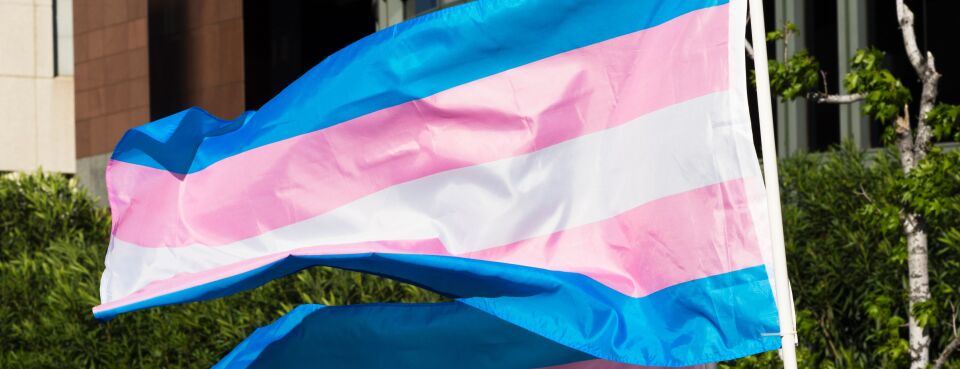

Action by the Biden administration to protect LGBT individuals from discrimination in health care pits the federal government against states passing laws that prohibit gender-affirming care, such as puberty blockers, for transgender minors.
Arkansas and Tennessee have recently passed such laws. Meanwhile, the Department of Health and Human Services said it would resume enforcing protections for LGBT Americans in health care, reversing a ban put in place by the Trump administration. This puts the states’ laws in direct conflict with federal law, attorneys say.
Transgender youth “are already at significant risk of bullying and harassment. And these state laws limiting their participation in sports and especially the laws that are limiting their access to medical care are just so difficult,” Rachel Levine, assistant secretary for health at the HHS, said in an interview.
The Arkansas law prohibits doctors and other health-care providers from suppressing puberty for transgender minors and using hormone therapy to induce gender-affirming physical changes. The Tennessee law bans hormone treatment for transgender minors who haven’t yet hit puberty.
Bans against providing gender-affirming care “are putting health care providers into a tricky spot where they’re prohibited from discriminating under federal law, but forced to discriminate under state law,” said David Brown, legal director for the Transgender Legal Defense & Education Fund.
However, it’s unclear how the change in federal enforcement will affect these state laws or other states considering similar legislation. About 20 other states have introduced similar legislation, according to the ACLU.
‘Bring it on, Biden!’
“If President Biden decides to sue the State of Arkansas to stop us from implementing the GIRLS Act, which safeguards opportunities for our young girls, or the SAFE Act, which protects children from experimental procedures, then my message to him is this: Bring it on, Biden!” Arkansas Attorney General Leslie Rutledge said in a statement.
“I will happily fight to ensure that Arkansas’s girls have a fair playing field and that our doctors follow the science instead of the political winds,” Rutledge said.
The SAFE Act, or the Save Adolescents From Experimentation Act, is an Arkansas law that bans gender-affirming medical care for transgender people under the age of 18. The GIRLS Act, or the Gender Integrity Reinforcement Legislation for Sports Act, is an Arkansas law that prohibits transgender girls and women from competing in women’s sports.
Tennessee on May 19 also passed a law banning gender-affirming medical care for transgender minors. The ACLU on Tuesday filed suit challenging Arkansas’ ban on gender-affirming care for minors, a move it planned to make even before the Biden administration’s action.
“I’m sure that there’ll be interactions between those state laws, and the new interpretation in terms of 1557, and we’ll see how legally that plays out. But I want to emphasize how difficult and challenging these are for transgender youth,” said Levine, the highest ranking openly transgender official in any administration.
“The ban on medical care is going to hurt kids. I mean it is going to lead to more challenges and more difficulties for already vulnerable transgender youth,” she said.
According to polling by the Center for American Progress and the nonpartisan research organization NORC at the University of Chicago, 28% of transgender respondents said they postponed or avoided needed medical care while they were sick or injured because they were concerned they would face discrimination.
Forty percent said they avoided preventive screenings, and 36% of LGBT people who had faced previous discrimination reported avoiding doctor’s offices.
LGBT Bias in Health Care
Section 1557 of the Affordable Care Act prohibits discrimination on the basis of race, color, national origin, sex, age, or disability by entities that primarily provide health care and receive federal funding. An HHS notice from May 10 says the Biden administration will enforce it as the law was initially intended.
The Obama administration made clear in a 2016 rule that Section 1557’s protections extend to bar discrimination based on sexual orientation, gender identity, transgender status, and against women seeking abortion-related care. The Trump administration then finalized a 2020 rule that removed women seeking abortions and LGBT people from the ACA’s non-discrimination protections—allowing health-care workers, hospitals, and insurance companies that receive federal funding to refuse to provide or cover services such as abortions or transition-related care.
The point the Biden administration is trying to make is that it is here to help LGBT people who are discriminated against in the health-care system and it wants to receive complaints in those situations, Katie Keith, a health-care policy research professor at Georgetown University, said
After the ACA became law, the Obama administration received an influx of complaints from LGBT individuals, and the Biden administration may see one as well, she said.
The Biden administration’s action “means HHS will start investigating these complaints again and using enforcement authority to investigate and follow up,” said Wayne Turner, a senior attorney at the National Health Law Program.
Brown said they hope there will be complaints about discrimination filed from states like Arkansas if there is bias occurring.
The notice from the Biden administration doesn’t “repeal the Trump-era regulation by itself, there’s more work to do,” and that will take time, Brown said.
The Office for Civil Rights of the HHS is reviewing the 1557 regulations and “we do anticipate engaging in rulemaking under 1557,” Robinsue Frohboese, the office’s acting director, said in an interview earlier this month.